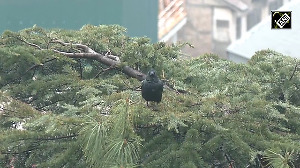A United States judge has reserved his orders on submissions by the Congress party that the 1984 anti-Sikh riots case filed against it by a rights group in New York be dismissed as the Manhattan court does not have jurisdiction over the case.
Judge Robert Sweet of US federal court reserved the orders on Wednesday on submissions on issues of effective service of summons and personal jurisdiction in the case filed by Sikhs for Justice against the Congress party.
Jones Day, the law firm representing the political party, had on July 13 filed a motion to dismiss all the charges against the Congress saying the party was not served the court summons properly by the SFJ and that the US federal court did not have jurisdiction to hear the case.
Challenging Congress's motion, the SFJ submitted a 28-page memorandum claiming that victims of the November 1984 anti-Sikh riots had served the summons on the Congress in a proper way and that the US court has personal jurisdiction to hear the claims under Alien Tort Statute and Torture Victim Protection Act.
The SFJ submitted documentary evidence to Sweet showing that Congress President Sonia Gandhi was served summons at the party's headquarters in New Delhi.
SFJ legal advisor Gurpatwant Singh Pannun said the motion has sought a trial calendar in the case arguing that victims have made a prima facie claim showing that the US court has personal jurisdiction over the Congress party.
A class action lawsuit was filed in March last year by SFJ under the Alien Tort Statute and Torture Victim Protection Act against the Congress for conspiring, abetting and carrying out attacks against Sikhs in India in November 1984.









 © 2025
© 2025